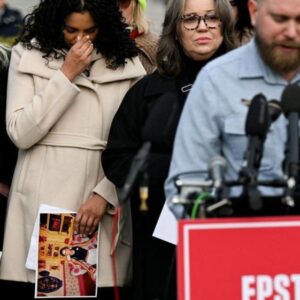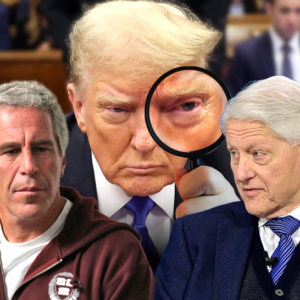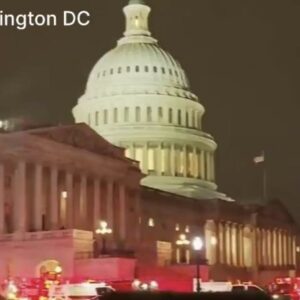As Congress approaches a critical deadline, the debate over government funding is heating up. With a potential shutdown looming, rhetoric from both parties is fierce. Republicans, led by Vice President JD Vance and House Speaker Mike Johnson, accuse Democrats of prioritizing healthcare for illegal immigrants over the paychecks of U.S. troops. This accusation is at the heart of the growing tension surrounding the continuing resolution (CR) intended to prevent the government from closing its doors.
Vice President Vance did not hold back, stating, “Democrats are about to shut down the government because they demand we fund healthcare for illegal aliens.” House Speaker Johnson echoed these sentiments, suggesting that Senate Minority Leader Chuck Schumer is intent on reinstating free healthcare for illegal immigrants at taxpayers’ expense. This pointed criticism underscores a widespread belief among Republicans that the Democratic agenda neglects the needs of American citizens, particularly those who serve in the military.
On the other side, Democrats, led by Schumer, refute these claims, dubbing the situation the “Republican healthcare crisis.” Schumer insists that the Republican accusations are unfounded, calling them “one of the big lies that they tell.” This sharp back-and-forth illustrates not only the divisive nature of current political discourse but also the high stakes involved as lawmakers navigate the complexities of budgetary constraints and social policy reform
Healthcare funding, especially concerning illegal immigrants, has long been a contentious issue. Republicans argue for tightening eligibility for Medicaid and reducing potential fraud, while Democrats fight to preserve the benefits offered under the Affordable Care Act (ACA). As part of their strategy, Congressional Democrats have voiced their intent to extend Obamacare tax credits—a move that many Republicans view as a threat to fiscal responsibility. “They want to have illegal aliens come into our country and get massive healthcare at the cost to everybody else,” Trump declared, highlighting the divide on health policy.
The ongoing tussle draws attention to the anticipated changes under Trump’s One Big Beautiful Bill Act (OBBBA), which aims to limit federal healthcare benefits for illegal immigrants. This follows Medicaid reforms that Republicans argue are necessary to ensure assistance is directed to lawful residents. However, critics convey concerns that such reforms could inadvertently limit access for some vulnerable legal immigrants, enhancing the complexity of the healthcare debate.
Amidst these conflicting narratives, the fundamental issue remains clear: Should taxpayer dollars be used to provide healthcare for individuals without legal status? Republicans are steadfast in their belief that funding should focus solely on American citizens, particularly with the military’s financial support hanging in the balance. Johnson articulated this perspective, framing the Democratic position as irresponsible and fundamentally misaligned with the needs of taxpayers. “They want to reinstate free healthcare for illegal aliens paid by American taxpayers,” he asserted.
Democrats have shifted the discourse, claiming that Republicans foster misinformation to distract from their failure to govern effectively. This accusation plays into broader criticisms of the GOP, particularly regarding how budgetary priorities reflect the party’s values. The disagreement over funding for healthcare reflects a fundamental clash over the role of government in providing social services, revealing deeper ideological divisions that shape not only legislative decisions but public sentiment as well.
The stakes of this funding showdown extend beyond immediate budgetary concerns. Republicans are using the current debate to underscore their stance on immigration and healthcare, hoping to frame the issue as pivotal to the upcoming campaign cycles. On social media, Trump has stated, “Democrats want illegal aliens, many of them violent criminals, to receive free healthcare,” which aligns with a broader narrative they hope to push that holds Democrats accountable for any resultant consequences of a shutdown.
As the midnight deadline looms, the prospect of a government shutdown is not just about fiscal policy; it’s a reflection of contrasting visions for the country’s future. The outcomes of these negotiations will undoubtedly have lasting implications on healthcare access, fiscal responsibility, and the intertwined nature of immigration policy with social services. Lawmakers must navigate these treacherous waters with both strategic acumen and consideration for the impact on American citizens.
With both sides entrenched in their positions, the public awaits the outcome with a mix of concern and anticipation. The rhetoric surrounding this funding debate will likely evolve further, with each party working to claim the narrative that best aligns with their vision for America. Whether the government can avoid a shutdown will depend not only on the issues themselves but also on the ability of leaders to find common ground amidst significant ideological differences.





